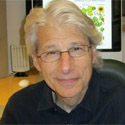Advisory Board and Editors Biotechnology

Bernardo Franco
Dr. Franco has 20 years experience in academic research in microbiology, molecular biology, and biochemistry. Skills acquired during academic research include mainly nucleic acid manipulation, synthetic biology, bioinformatics, PCR, RT-PCR and qPCR, protein purification and characterization, light and confocal microscopy, flow cytometry and cell sorting, microbiological techniques (microorganism and cell culture, and collection management), good laboratory practices among others. He has eight years teaching experience in undergraduate and graduate programs (Signal transduction in bacteria and Molecular biology techniques, respectively).

Takashi Funatsu
Takashi Funatsu received his BS, MS and PhD degrees from Waseda University in 1982, 1984 and 1988, respectively. He was an associate professor at Waseda University in 1997. Since 2004, he has been a professor of Graduate School of Pharmaceutical Sciences, The University of Tokyo. His research interests are (1) Elucidating the molecular mechanism of bio-molecular machine, such as a molecular chaperonin, (2) Single molecule imaging of processing and transport of mRNA in a living cell, and (3) Development of micro/nano devices to analyze bio-molecular interactions.

Liang Gao
Dr. Liang Gao currently works as a senior Research Fellow at the Center of Experimental Orthopaedics, Saarland University, Germany. His clinical interests include sports medicine, arthroplasty, and traumatology. His research focuses on joint preservation and orthobiologics.
Dr. Gao studied Medicine in China and Germany with intensive fellowship training in both Asia and Europe. He completed the Musculoskeletal Surgical Oncology residency training at Peking University Medical Center, China. Moreover, he obtained his master of science degree (Radiation Oncology) from Heidelberg University, Germany and his doctorate (Biological Therapy) summa cum laude from Saarland University, Germany.
Dr. Gao is the Member of the Basic Science Committee of International Cartilage Regeneration & Joint Preservation Society (ICRS), the Member of the Early Career Investigator Committee of Osteoarthritis Research Society International (OARSI), and the Founding Member of the Sino Euro Orthopaedics Society (SEOS).

Hemant Ghayvat
I am an Associate Professor at Linnaeus University, where my research and teaching center on AI-enabled systems for healthcare and smart environments. My work leverages the power of IoT, machine learning, and deep learning to create practical solutions, from contactless heart monitoring to smart home technologies that support assisted living. I am passionate about using technology to improve well-being and create more intelligent, responsive environments.

Robert B. Goldberg
Distinguished Professor of Molecular, Cell, & Developmental Biology, UCLA; Member of the National Academy of Science (USA); Fellow of the American Society of Plant Biologists (ASPB); Fellow of the American Association For the Advancement of Science (AAAS).

Diego F Gomez-Casati
Dr. Gomez-Casati received his Bs in Biochemistry from the National University of Rosario, Argentine, and his Ph.D. in Biochemistry from the University of Buenos Aires. He carried out postdoctoral research at the Chascomus Institute of Technology, Argentine, and Bordeaux 2 University, France. He was a visiting Scientist at California State University, Fullerton, USA, Laboratoire Microbiologie Cellulaire et Moleculaire et Pathogenicite, Centre National de la Recherche Scientifique (CNRS), Université Bordeaux-2, Pontificia Universidad Católica de Chile, Santiago de Chile and Centro de Biotecnología y Genómica de Plantas (Univ. Politecnica de Madrid), Spain. He was Professor of Plant Biotechnology at the National University of San Martín (UNSAM, 2000-2019). At the present, he is a researcher from the National Research Council, Argentine (CONICET, since 2002), Director of the Plant & Algae Molecular Biology and Biotechnology Laboratory at the Institute for Photosynthetic and Biochemical Studies (CEFOBI-CONICET, since 2009), and Professor of Chemical Biology at the National University of Rosario (since 2012).

Omar Gonzalez-Ortega
I have a PhD degree in Chemical Engineering from The University of Arizona. My research experience is centered in two topics: purification of biomolecules and bionanotechnology. Sometimes I perform simulation of chemical and biochemical processes.

Rita Grandori
Professor of Biochemistry at the Department of Biotechnology and Biosciences, University of Milano-Bicocca, Milan, Italy. Adjunct Professor of Protein Science at the Institute of Organic Chemistry, Johannes Kepler University, Linz, Austria.

Arthur Gruber
Prof. Arthur Gruber received his Bachelor’s in Veterinary Medicine, PhD in Biochemistry, Associate degree in Animal Pathology from the University of São Paulo. He is Associate Professor at the Institute of Biomedical Sciences, University of São Paulo, affiliated member, European Viral Bioinformatics Center, and member of the directory board, Brazilian Association for Bioinformatics and Computational Biology (AB3C). Prof. Gruber is PI of the Viral Genomics and Bioinformatics research group, developing bioinformatics methods and tools for viral detection, classification and discovery.

Fanglin Guan
Prof. Fanglin Guan is Dean at Xi'an Jiaotong University. He is engaged in the integrated biological research of complex diseases, including tumor microenvironment and novel immunotherapeutic modalities, and research on the mechanisms and medical applications related to tumor cell vaccines, especially for the exploration of the mechanism of determining the biomarkers of complex diseases.

Aarti Gupta
Dr. Aarti Gupta is a Research Scientist at the Institute of Genomics for Crop Abiotic Stress Tolerance (IGCAST), Texas Tech University.
She obtained her Ph.D in Plant Genetics and has expertise in the area of plant stress biology and plant molecular biology

Christophe Hano
Dr. Christophe Hano, completed his PhD in 2005 in Plant Physiology, Biochemistry and Molecular Biology, and is now Assistant Professor at the University of Orleans at Research INRAE Lab LBLGC USC1328 and a member of the Cosm'ACTIFS Research Group (CNRS GDR3711). His research career has focused on applied plant metabolism, plant biotechnology and green (bio)chemistry.
Currently, he is developing research projects aimed at studying plant secondary metabolism to lead to the development of natural products with interests in pharmacology or cosmetics. His research focuses on the green extraction and analytical methods applied to plant polyphenols, elucidation of biosynthetic mechanisms of plant natural products and their exploitation by metabolic engineering approaches.

